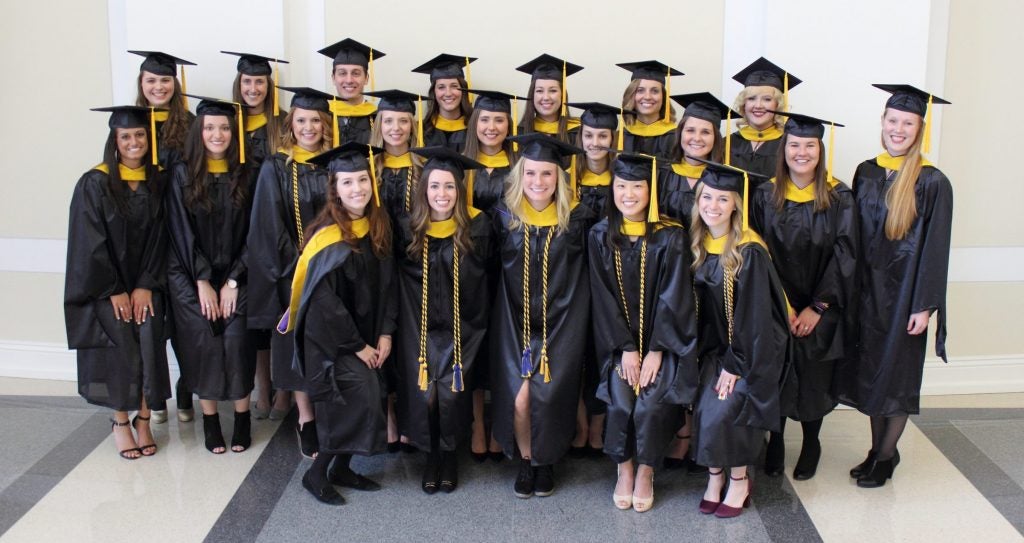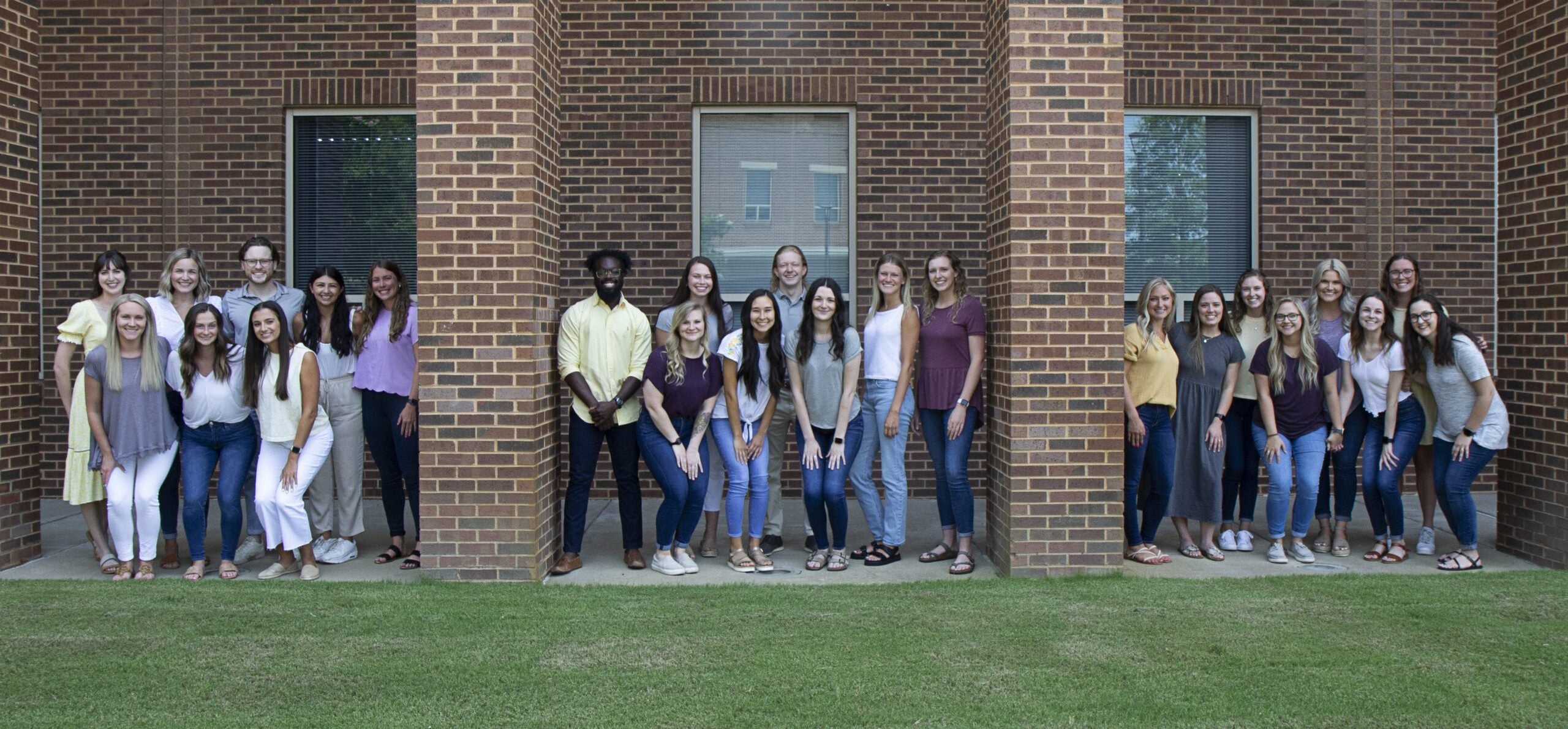Vision, Mission, and Educational Philosophy
Vision of the Department of Occupational Therapy
We envision a future in which our graduates transform clients’ lives through the power of occupations to promote health and well-being.
Mission of the Department of Occupational Therapy
The mission of the Department of Occupational Therapy is to develop occupational therapists who:
- Understand the power of meaningful occupations and use occupational engagement across all contexts to enhance quality of life, improve health and well-being, and reduce health disparities.
- Lead the delivery of collaborative and high-quality occupational therapy services with clients, professionals, and systems, supported by research and service.
- Practice innovative, ethical, and evidence-based occupational therapy to transform clients’ lives in the region and beyond.
Educational Philosophy of the Department of Occupational Therapy
Our curriculum and learning environment are based on transformative learning theory, with a foundation in constructivism. We believe that to become an exceptional occupational therapist, students must develop skills in 1) the performance of clinical skills based in occupation, 2) engagement in evidence-based practice and scholarly activities, 3) critical and ethical reasoning processes, and finally 4) development of professionalism and leadership.
In all didactic courses, two signature pedagogies of occupational therapy education are employed, namely relational learning and affective learning (Taff et al., 2020). Relational learning emphasizes human connections, specifically those between students and faculty, other professionals, and fieldwork educators. Affective learning focuses on the transformation and socialization of students to the profession of occupational therapy, with an emphasis on values, culture and ethics of the profession. In our didactic courses, faculty become facilitators in developing students capable of reflection, discourse, clinical reasoning, therapeutic use of self, and habits of mind of the occupational therapist. Students will engage in experiential learning activities with peers, simulated patients, and individuals in the community to learn through case studies, human connections, and formative feedback.
The third signature pedagogy of occupational therapy, highly contextualized active engagement, is utilized through fieldwork and capstone experiences. In both contexts, faculty and clinical instructors facilitate authentic, engaged learning. Aligning with the overarching application of transformative learning theory, three different areas of scholarship could be the focus of the capstone: (1) Scholarship of Discovery (participating in ongoing research or creating a new study), (2) Scholarship of Teaching (client/family education program, staff development program, or academic course development), and (3) Scholarship of Application (clinical practice or program development).
These signature pedagogies facilitate student transformation into skilled practitioners, focused on the mission of the department and the core values of the profession of occupational therapy. Ultimately, we seek to transform students through the professional acculturation process to integrate the knowledge, skills, attitudes, values, and norms of the occupational therapy community (See “Department of Occupational Therapy Philosophy of Education, Educational Philosophy [Teaching and Learning]” for full text).
Program of Study
| Curricular Themes | Student Learning Outcomes |
|---|---|
| Theme 1: Clinical Performance based in Occupation | Students will administer clinically relevant assessments and implement client-centered, occupation-based interventions. Students will demonstrate the requisite sensorimotor and physical abilities to perform exemplary client care and ensure client safety. |
| Theme 2: Critical and Ethical Reasoning | Students will exhibit the appropriate intellectual, ethical, emotional, and affective capabilities to perform clinical problem-solving and synthesize information to formulate sound clinical judgments. Students will demonstrate cognitive flexibility to adjust to changing situations and uncertainty in the clinical environment. Students will employ ethical reasoning to ensure fair, equitable, and non-discriminatory occupational therapy practice. |
| Theme 3: Evidence-Based Practice and Scholarship | Students will select and utilize scholarly evidence to enhance professional practice. Students will engage in scholarly activities that support and promote clinical excellence and leadership. |
| Theme 4: Professionalism and Leadership | Students will utilize effective spoken, written and nonverbal communication with clients, caregivers and other professionals consistent with cultural humility. Students will critically self-appraise professional, technical, and personal skills that contribute to positive client outcomes and ongoing professional development. Students will identify and engage in advocacy opportunities that align with the needs of clients and advance the profession’s goals and standards. |
(See “MSOT / OTD Program of Study” for full text)

